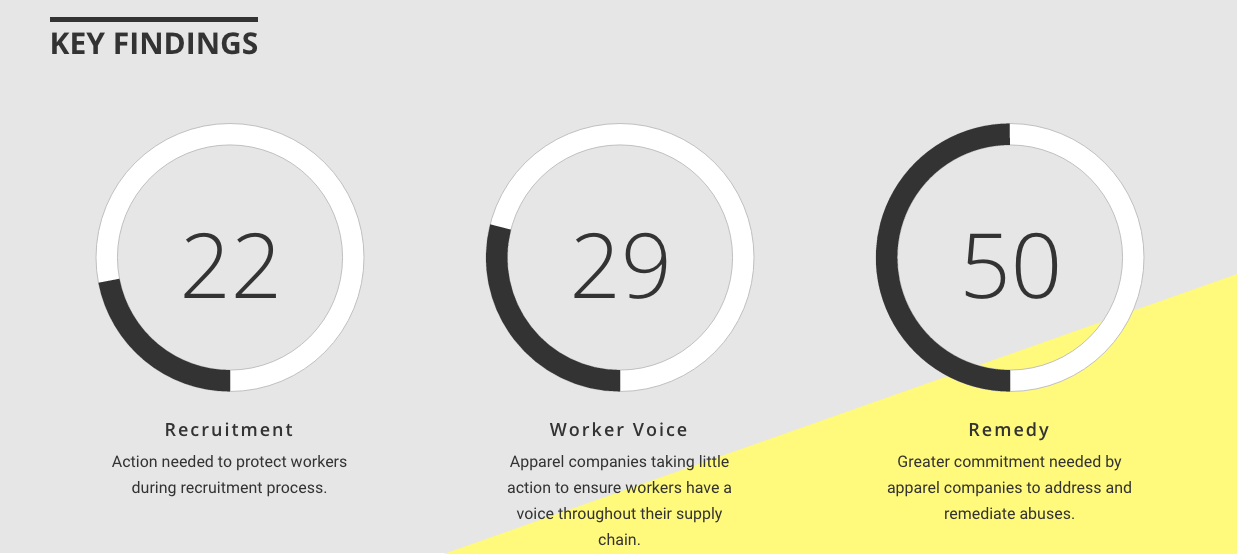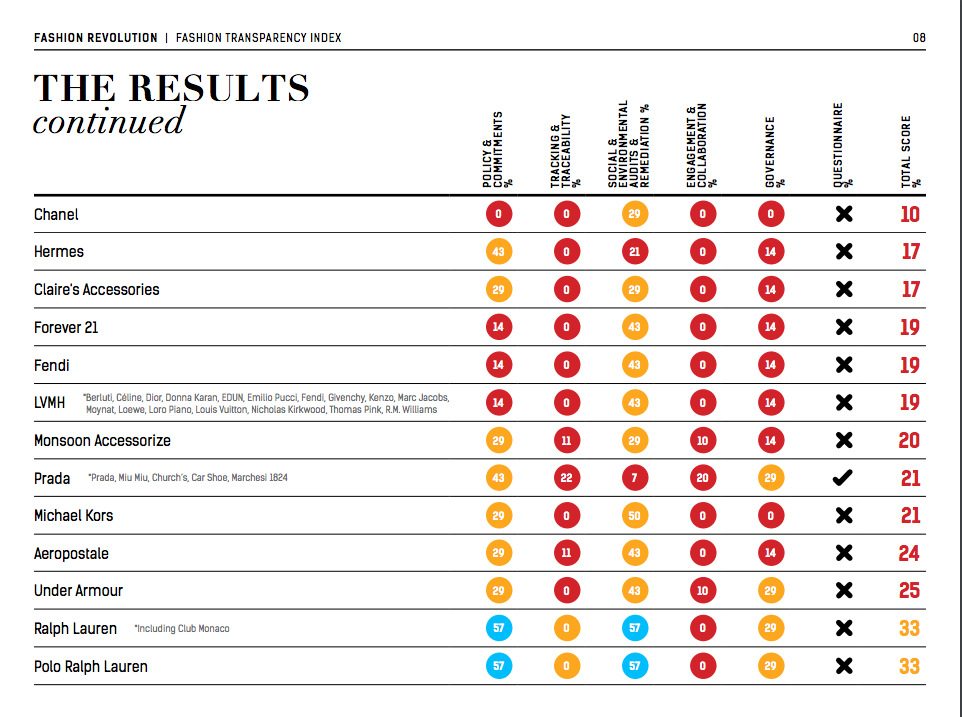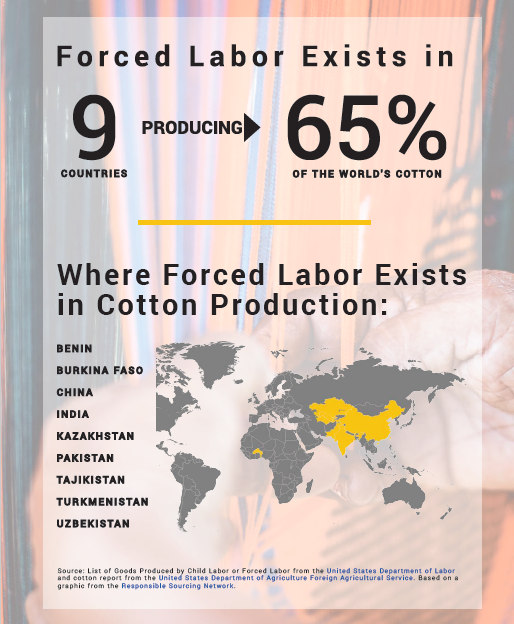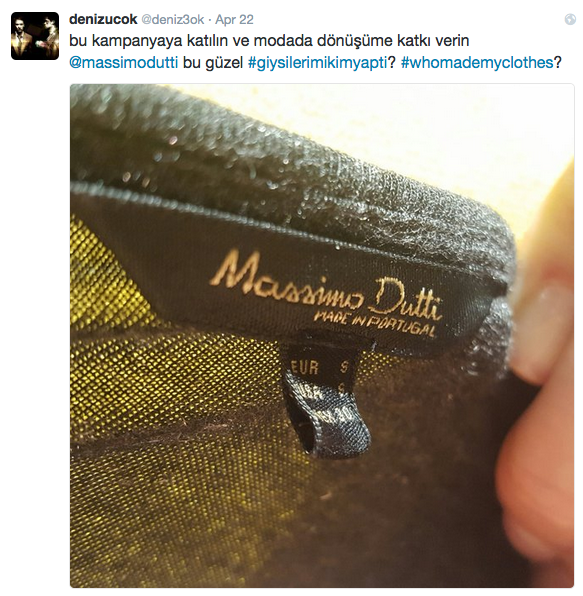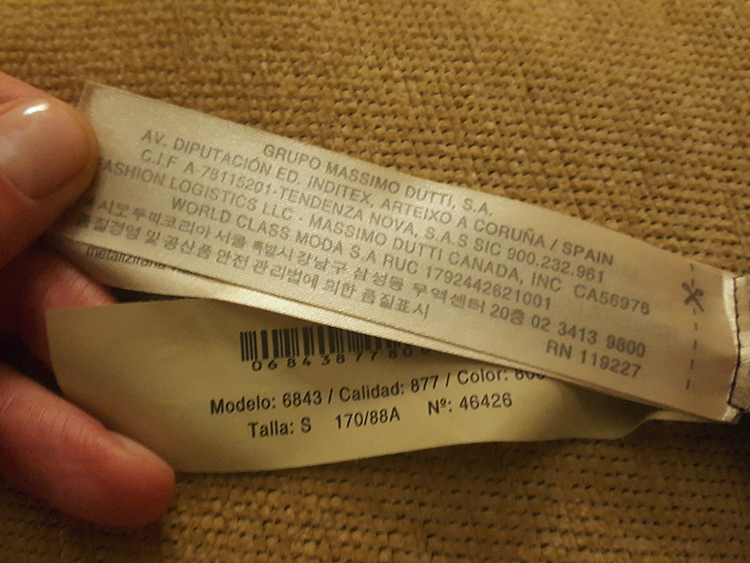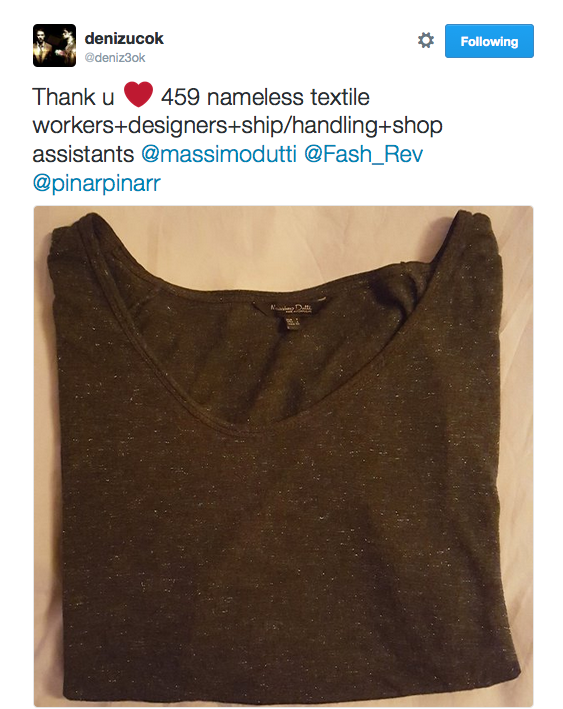KnowTheChain have launched a ranking of 20 large clothing and footwear companies on their efforts to eradicate forced labor and human trafficking from their supply chains. Their Apparel & Footwear Benchmark Findings Report found only a small group of companies seriously addresses exploitation. Most companies have systems in place to monitor and react to forced labour and human trafficking, but few companies address systemic causes.
The four highest performing companies (Adidas, Gap, H&M and Lululemon) achieve scores above 60/100. Among the lowest performing companies are Hong Kong-based Belle International Holdings (0/100), Chinese clothing manufacturer Shenzhou International Group Holdings (1/100), and the luxury Italian fashion house, Prada (9/100). Across seven measurement areas, the average company score is 46 out of a possible 100. Overall, luxury brands including Hugo Boss, Kering (holding company of Alexander McQueen, Gucci, Stella McCartney and others) and Ralph Lauren score much lower than high street apparel retailers (such as H&M, Inditex or Primark), with none achieving an above average score.
This echoes the findings of Fashion Revolution’s Fashion Transparency Index, published in April 2016, where Prada, Ralph Lauren and other luxury companies received some of the lowest scores.
Longstanding public awareness and pressure, spurred from incidents of child labour in the footwear sector in the 1990s and grave health and safety incidents in Bangladeshi factories in recent years, has resulted in companies putting in place supply chain monitoring systems. However, these have a strong focus on first tier suppliers, while workers tend to be at the greatest risk further down the supply chain. Adidas, which ranked highest in the benchmark (81 out of 100 points), works in partnership with its first tier suppliers to support training for second tier suppliers and subcontractors, as well as develops models to address risks of forced labour in its third tier supply chain.
Forced labour in this sector occurs both at the raw materials level and during the manufacturing stages of apparel and footwear companies’ supply chains. The report finds that all companies benchmarked can improve in rolling out programmes that reach to all tiers of their supply chains. Companies are encouraged to promote direct hiring of workers where possible as well as to perform robust due diligence of third-party recruitment agencies. Companies are also encouraged to engage directly with supply chain workers outside the factory context, allowing companies to get a clearer picture of what is happening on the ground.
“Despite international and brand attention on worker issues for more than twenty years, many retailers haven’t addressed the deep seeded causes of worker abuse in their supply chains. Hopefully this benchmark will help them recognise that they need to do better by the people making their clothes and shoes,” said Killian Moote, director of KnowTheChain.
We can all put pressure on brands to address forced labour and other issues by asking the question #whomademyclothes as transparency is an essential first step towards improving conditions in the supply chain. Use the pledge at the bottom of Fashion Revolution’s home page to send a tweet to your favourite brand.
This year, Fashion Revolution Week took place in 89 countries around the world. One of these countries was Turkey.
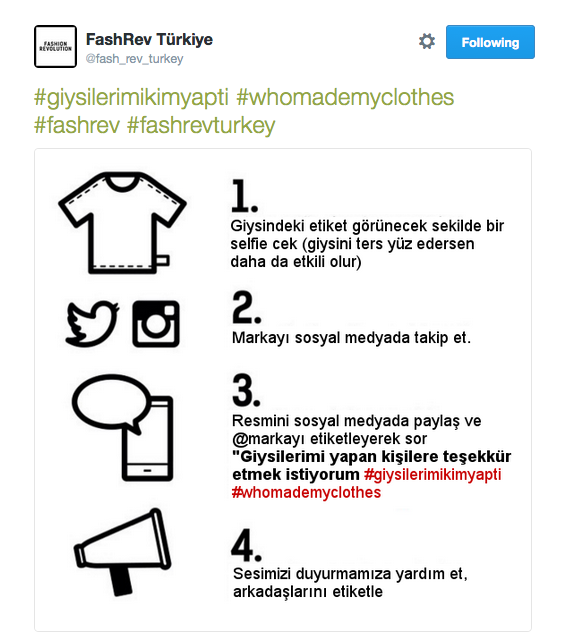
Deniz Ucok saw this post and decided to ask Massimo Dutti who made her T-Shirt #whomademyclothes?
Massimo Dutti is a Spanish clothes manufacturing company, founded in 1985, which is part of the Inditex group. Massimo Dutti is not a real person, but a trademark. Despite the Italian name, it is a Spanish company employing over 4000 people worldwide.
Massimo Dutti responded by asking Deniz to send them a photograph of the labels in her T-Shirt.
And Massimo Dutti certainly can answer the question #whomademyclothes, as shown by their comprehensive answer below.
Dear customer,
The item you requested information about was purchased from a Portuguese Company for the Summer collection 2016. The name of our supplier is Vieira & Marques, Lda. and their facilities are located at San Martinho Campo. It has 180 employees and it received the highest score during our latest social audit which will be revised again throughout this year (2016.)
During the manufacturing process other Portuguese companies have intervened:
For fabric manufacturing: Vilartex Emp de Malahas V Lda based in Guimaraes and with 106 employees.
For tinting processes: Carvitin Tintura e Acabamentos Lda, based in Coimbra with 56 employees.
For confection: M Look Confeccoes based in Fomelos with 40 employees.
For ironing: Jose Amorim Mota Unipessoal Lda, based in Guimaraes with 67 employees.
All these factories have been examined by our social audits as well as production audits that assure the clothing traceability.
We hope you find this information useful.
Kind regards,
Massimo Dutti
Deniz replied to Massimo Dutti on Twitter.
Inditex scored 76% overall in Fashion Revolution’s Fashion Transparency Index, published on 18 April, just one percentage point behind the leader, Levi Strauss & Co. To find out more about the scoring and methodology of the index, please read our Top 10 FAQs
